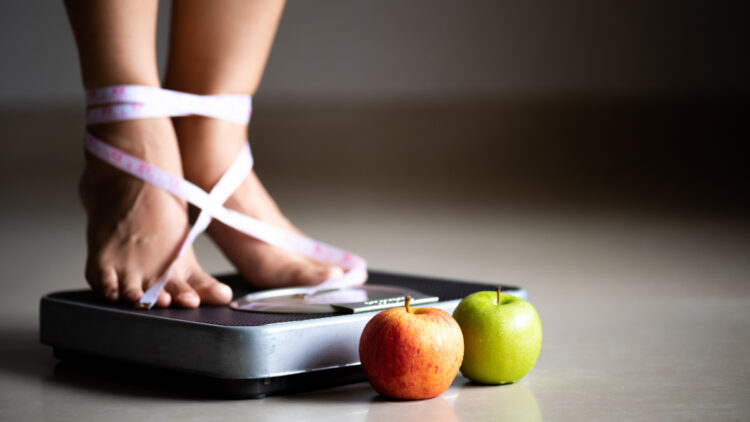Many life experiences can be draining and heartbreaking, but few can compare to infertility. When getting pregnant presents more difficulties than joy, many women feel devastated. Still, there is a chance of conceiving by boosting your female fertility with a few simple steps.
While some factors might be beyond control, https://motherhoodtips.com/ outlines some of the best tips for boosting female fertility. Indeed, better lifestyle choices can effectively help solve most female fertility issues. Here’s everything you need to know about improving your reproductive function for a successful pregnancy!
What is female fertility?
In simple terms, female fertility refers to a woman’s ability to conceive and give birth. Typically, its efficiency depends on the health and function of the reproductive organs. While factors like genetics and certain medical conditions are rarely reversible, lifestyle choices and the environment can do wonders.
What causes female fertility issues?

As already mentioned, many factors can reduce female reproductive function. From genetics to age and common diet regimen issues, reasons may vary throughout the spectrum. Still, some complications deserve attention. Here are the most crucial ones:
- Ovulation disorders caused by hormonal imbalances, genetic conditions, or other health issues
- Polycystic ovary syndrome (PCOS) can disrupt ovulation due to the production of excess androgen
- Fallopian tube damage or blockage in cases of pelvic inflammatory disease, endometriosis, or surgery
- Uterine or cervical abnormalities regarding structural issues in the uterus or cervix, such as fibroids, polyps, or a condition called endometriosis
- Decreased female fertility related to aging, especially for women over 35
- Lifestyle factors such as smoking, alcohol consumption, and obesity
What are the best ways to promote female fertility?
Undoubtedly, there are many different causes for reduced reproductive function among women. Still, struggling with infertility shouldn’t end with a mere diagnosis. There are lots of solutions that you can do to improve your condition.
As a starter, seeing a doctor specializing in fertility will give a clearer picture of the chances of getting pregnant. After the proper testing and medical intervention, you can start with some simple steps to boost your reproductive function. Here are some of the best ways to do that:
Maintaining a healthy weight

Maintaining a healthy weight is essential for female fertility and successful pregnancy because being underweight or overweight can disrupt the normal menstrual cycle and ovulation. This can make it more difficult to conceive. Additionally, carrying excess weight during pregnancy can increase the risk of complications such as gestational diabetes and pre-eclampsia and increase the risk of specific congenital disabilities. Therefore, women need to maintain a healthy weight before and during pregnancy to increase the chances of a healthy pregnancy and baby.
Healthy diet
A healthy diet is crucial for female fertility since it helps improve general health and increase the chances of conceiving. In this regard, it’s essential to include a varied intake of fruits and vegetables, whole grains, lean meats, and healthy fats.
Certain nutrients, such as folic acid, iron, and Omega-3 fatty acids, are crucial for conception and pregnancy. They help protect the baby from birth anomalies, promote growth and development, and keep the mother in optimal health. Since keeping a balanced diet is often difficult, some women add vitamin supplements to aid their daily regimen.
Regular exercise
Regular exercise is essential for maintaining a healthy weight. In this regard, it’s safe to say that it can significantly boost female fertility and ensure a successful pregnancy. Arguably, the main reason to start regular exercise is that it increases ovulation and controls menstrual cycles. That way, it will improve the likelihood of conception.
Besides, mild to medium-intensity exercises can lower the likelihood of developing certain diseases like diabetes and hypertension. Ultimately, you’ll promote healthy reproductive function and enhance general cardiovascular health. Of course, you shouldn’t overload, as this might have a backward effect.
Managing stress

Effective stress management is crucial for female fertility and conception since stress can impact the body’s hormonal balance. Moreover, it can interfere with the regular menstrual cycle and prevent ovulation. Besides, continuous stress has a detrimental effect on general health, which lowers fertility even more. Here are some simple tips on how to deal with the accumulating tension:
- Take up yoga, meditation, and deep breathing
- Get regular exercise
- Maintain a healthy diet
- Get enough sleep
- Connect with friends and family
- Talk to a therapist
- Engage in activities that bring joy and relaxation
Avoid smoking and heavy drinking
Smoking and alcohol can have an adverse effect on female fertility. Typically, long-term impacts include lowering egg production and quality and raising the chance of miscarriage and preterm delivery. Additionally, smoking during pregnancy increases the chance of some birth abnormalities, including cleft lip and palate, as well as the likelihood of SIDS.
On the other hand, heavy drinking can interfere with the regular menstrual cycle and ovulation. It can also raise the chance of miscarriage and birth abnormalities. Drinking during pregnancy can effectively increase the risk of fetal alcohol spectrum disorders (FASD). The latter condition often results in intellectual, behavioral, and physical disabilities that last a lifetime.
Take Folic acid

Undoubtedly, Folic acid is one of the most critical supplements for female fertility. While it’s essential for successful conception, it’s also crucial during pregnancy. Since it’s a B vitamin, Folic acid plays a primary role in producing healthy red blood cells and DNA.
Having a proper reserve of the vitamin will prevent birth defects in the baby’s brain and spine, specifically neural tube defects (NTDs). Moreover, it’s essential in developing the brain, spinal cord, and skull. In this regard, this supplement is perfect for women who are planning to become pregnant or are already pregnant. Alternatively, you can ensure proper Folic acid intake by eating leafy green vegetables, citrus fruits, fortified cereals, and bread.
Final Thoughts
In conclusion, maintaining healthy fertility levels among women is crucial for successful conception. Moreover, regular exercise and stress management ensure better health for the mother and the baby during pregnancy.
Addressing any underlying fertility issues and maintaining overall health can also contribute to a successful pregnancy. Of course, you shouldn’t forget to consult a healthcare professional to understand what’s best for your situation. Ultimately, combining these steps with the doctor’s advice will help you take the steps needed to promote and achieve optimal female fertility.
 Hi Boox Popular Magazine 2025
Hi Boox Popular Magazine 2025



